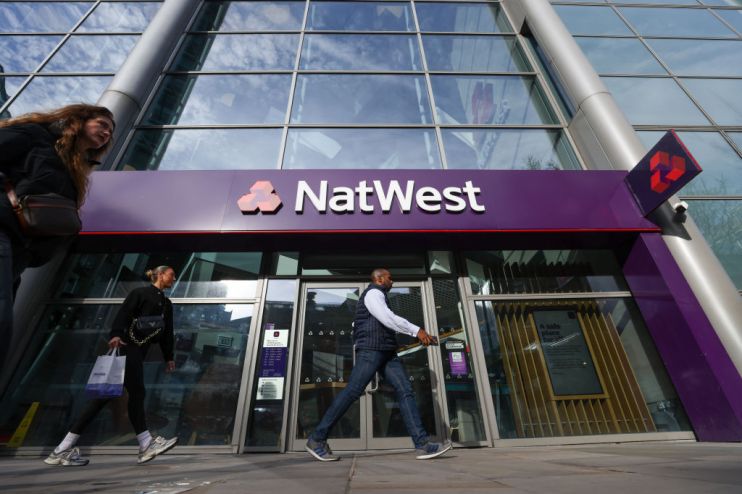Treasury finalising plans for Natwest share sale to accelerate privatisation

The Treasury is poised to unveil a multibillion-pound sale of a chunk of its remaining stake in Natwest in the coming weeks in a bid to accelerate its privatisation process and boost retail investment in the UK.
According to reports, the Treasury is planning to launch its sale alongside an institutional placing of shares to take its stake below 10 per cent by the end of this year – a significant milestone in its goal of fully privatising the bank by 2025 to 2026.
Chancellor Jeremy Hunt announced last November that the government would explore offering part of its remaining stake to retail investors as part of wider efforts to boost capital markets activity in London.
The Treasury is planning to launch the sale this summer, although it is understood that the timing of the general election campaign could affect the decision.
The government is the biggest single shareholder in Natwest. It currently holds a stake of just under 27 per cent, worth roughly £7.5bn. The government first took an 84 per cent stake in the bank to rescue it during the financial crisis in 2008.
It is unclear how much the Treasury is looking to raise from a retail offer. UBS analysts have estimated the government’s stake could fall to 17 per cent by the middle of July from its continuous trading plan and a possible directed buyback that Natwest is eligible to make a deal for this month.
In this scenario, the government would have to sell around £2bn worth of stock to take its stake down to 10 per cent.
Bloomberg News reported that the Treasury is planning to launch a broad marketing campaign as early as next month to push the sale.
Advisers working on the plan include advertising agency M&C Saatchi, law firm Freshfields Bruckhaus Deringer, Barclays and Goldman Sachs. Brokers Hargreaves Lansdown and AJ Bell are expected to help market the shares.
Shares are expected to be priced at a discount to make them more appealing. The government is reported to be considering offering a bonus share for every 10 bought from the government and held for at least a year, similar to the Royal Mail’s sale a decade ago.
Other proposals include a minimum investment of £250, as well as a ceiling of £10,000, according to Sky News, which would match an abandoned 2015 plan for a retail offering of the government’s stake in Lloyds Banking Group.
The government’s stake in Natwest fell below 30 per cent in March, meaning it was no longer classed as a controlling shareholder. The news has been welcomed by investors, some of which were reluctant to increase their shareholding over fears of state intervention.
US investment management giant Capital Group has become one of Natwest’s top 30 shareholders after buying around £110m shares shortly after the government’s stake fell below 30 per cent, The Guardian reported. Capital Group declined to comment.
“There is undoubtedly a perception that there is more intervention from His Majesty’s Treasury than there actually is,” Natwest’s new chair Rick Haythornthwaite said at its AGM last month.
Although the government has taken an increasingly hands-off approach from the bank in recent years, it was criticised for pushing for then CEO Dame Alison Rose’s resignation last summer following a “debanking” row with former Ukip leader Nigel Farage.
Hunt and prime minister Rishi Sunak have not yet made a final decision on whether to formally go ahead with the offer. The Treasury has said its plan is subject to market conditions and getting value for money.
Following a bruising 2023, Natwest is currently the top performing company on the FTSE 100 so far this year. Its shares are up 45 per cent on the back of strong earnings, a new management team and improved sentiment across banking stocks.
A Treasury spokesperson said: “The government will make a decision about launching a retail offering of Natwest shares in due course – no final decisions have yet been taken.”
Natwest has said that decisions on a possible sale are a matter for the government. Haythornthwaite said last month that he was confident the bank’s current leadership team would see it return to full private ownership.